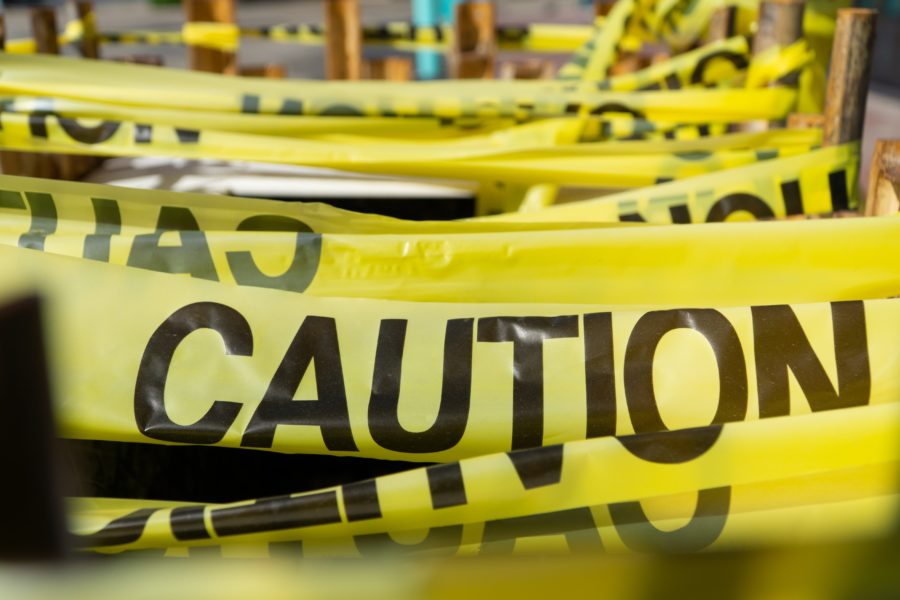
Bill McSwain, the top federal cop in Philadelphia, says the mob isn’t what it used to be.
And in many ways, he’s right. The high profile and wanton use of violence, the drive-by shootings and the celebrity-like parties and charity events that were trademarks of the local branch of Cosa Nostra are in the past.
But despite McSwain’s assertions, made in a press release announcing a racketeering indictment that targeted 15 mob members and associates back in November, some things haven’t changed.
The Philadelphia branch of the Mafia still appears to be one of the most dysfunctional mob families in America. An organization dubbed “the Simpsons of the underworld” more than 30 years ago hasn’t gotten its act together in the 21st century.
Drug dealing and electronic surveillance were the undoing of the crime family in the 1990s and the 40-page indictment unsealed two months ago offers more of the same.
“The Philadelphia mob isn’t what it used to be,” McSwain, the U.S. Attorney for the Eastern District of Pennsylvania, said. “But it is still a problem…(still) committing serious federal crimes which is why we…are focusing on stamping it out.”
The racketeering conspiracy indictment includes charges of drug dealing, gambling, loan sharking and extortion, the typical mob gambits that have been a part of most major indictments over the past 30 years. The only things missing are allegations of murder and attempted murder, but that could change. Investigators with the FBI, the Pennsylvania State Police and the Philadelphia Police Department are continuing to focus on at least four unsolved mob hits that could be folded into this case or could be the basis for another indictment.
“The mob continues to keep its fingers in many different pots in its ceaseless quest for illegal profits,” said Michael J. Driscoll, head of the Philadelphia FBI office. “The FBI is as committed to eradicating organized crime as wise guys are to embracing it.”
The key targets in the current case are longtime mob leader Steven Mazzone, described as the underboss of the crime family, and mob capo Domenic Grande.
Ten of the 15 defendants in the case, including Grande, Mazzone and Mazzone’s brother Sonny, described as a mob “soldier,” have been charged with racketeering conspiracy. The indictment alleges that the Mazzones were heavily involved in gambling, loan sharking and extortion. Grande apparently had a piece of that, but his bigger problem is a charge that links him to drug dealing.
Heroin, cocaine and fentanyl were being distributed by several members of Grande’s crew, according to the indictment. And that adds up to additional legal jeopardy for the South Philadelphia wise guy.
At 41, Grande is the youngest “made” member of the organization charged in the case. Fifteen years younger than Steve Mazzone and a kid in comparison to seven other defendants who are already Medicare-eligible, Grande is the new face of the Philadelphia crime family, Cosa Nostra’s next generation.
He has an extensive but somewhat tarnished mob pedigree. His uncle, Salvatore “Sammy” Piccolo, was convicted in a federal drug case in New Jersey last year that was a precursor to the current indictment. The Piccolo family’s involvement in the Philadelphia mob dates back at least to the 1950s and the Angelo Bruno era.
The late Anthony “Tony Buck” Piccolo was a legendary “gentleman gangster” whose involvement began with Bruno and extended through the fractured and violent administrations of Nicodemo “Little Nicky” Scarfo and John Stanfa.
Grande’s grandfather, John “Coo Coo” Grande, was a Bruno soldier. His father, Salvatore “Wayne” Grande, was a hitman for Scarfo. After being convicted on racketeering charges with Scarfo and 15 others in 1988, Wayne Grande began cooperating with authorities.
But in the Philadelphia underworld the sins of the father did not derail the son’s climb up the organizational ladder. Domenic Grande, according to law enforcement investigators, is the suspected shooter in one unsolved mob murder and the leader of a “crew” involved in gambling, loan sharking and drug dealing.
In the current case, court documents allege he was secretly recorded urging members of his crew to “plant the flag” of the Philadelphia mob in the Atlantic City area by re-establishing a street tax on independent bookmakers, demanding a share of the gambling operators’ earnings if they wanted to stay in business.
At the same time, it appears, members of Grande’s crew connected with a drug dealing operation headed up by Joseph “Joey Electric” Servidio, a North Jersey mob figure who had relocated to the Ocean City area.
Servidio, a defendant in the current indictment, pleaded guilty to drug dealing charges in the New Jersey case last year and was sentenced to 15 years in prison. That case was built in part around secretly recorded conversations made by Anthony Persiano, a mobster and reputed member of Grande’s crew who began cooperating with authorities five years ago. Persiano subsequently introduced an FBI undercover agent who was also wired for sound into the drug dealing ring.
As a result, authorities were able to obtain audio and video surveillance of drug deals going down. What’s more, according to an FBI affidavit describing the tapings, authorities got to hear mobsters talking in their own words about their business.
If the Philadelphia mob is one of the most dysfunctional crime families in America, it is also one of the most recorded. And as previous cases have demonstrated, tapes are devastating pieces of evidence.
Servidio pleaded out in the New Jersey case last year after his own incriminating comments were picked up on secretly recorded conversations in which he openly admitted he dealt drugs and explained that it was the only way he could generate the kind of income he needed to maintain his lifestyle. Those kinds of comments, played for a jury at trial, can bury a defendant.
It appears Grande may have the same problem.
In a pre-trial detention motion, prosecutors argued that the case against him relied on “hundreds of hours of recordings of him and his criminal associates discussing their crimes.”
If, as the government alleges, Domenic Grande’s crew was involved in drug dealing and if, as the capo of the crew, he was knowingly getting a piece of that action, then the tapes and the testimony of cooperators and the FBI undercover could help prosecutors make the argument that Grande was part of the drug conspiracy.
Authorities said Grande was recorded “discussing drug trafficking…telling an FBI informant to be ‘careful’ when obtaining a kilogram of cocaine for sale but that the informant should ‘do what you gotta do’ in order to sell the drugs. When speaking of obtaining and selling oxycodone and counterfeit oxycodone (made with heroin and fentanyl) Grande stated, ‘if you can get that man, I can f—ing move thousands of them. . . . You know these kids sell them for f…ing $20 a piece?’”
Drugs, tapes and informants.
Despite the disclaimer from U.S. Attorney Bill McSwain, it appears the Philadelphia mob is still very much what it used to be.

